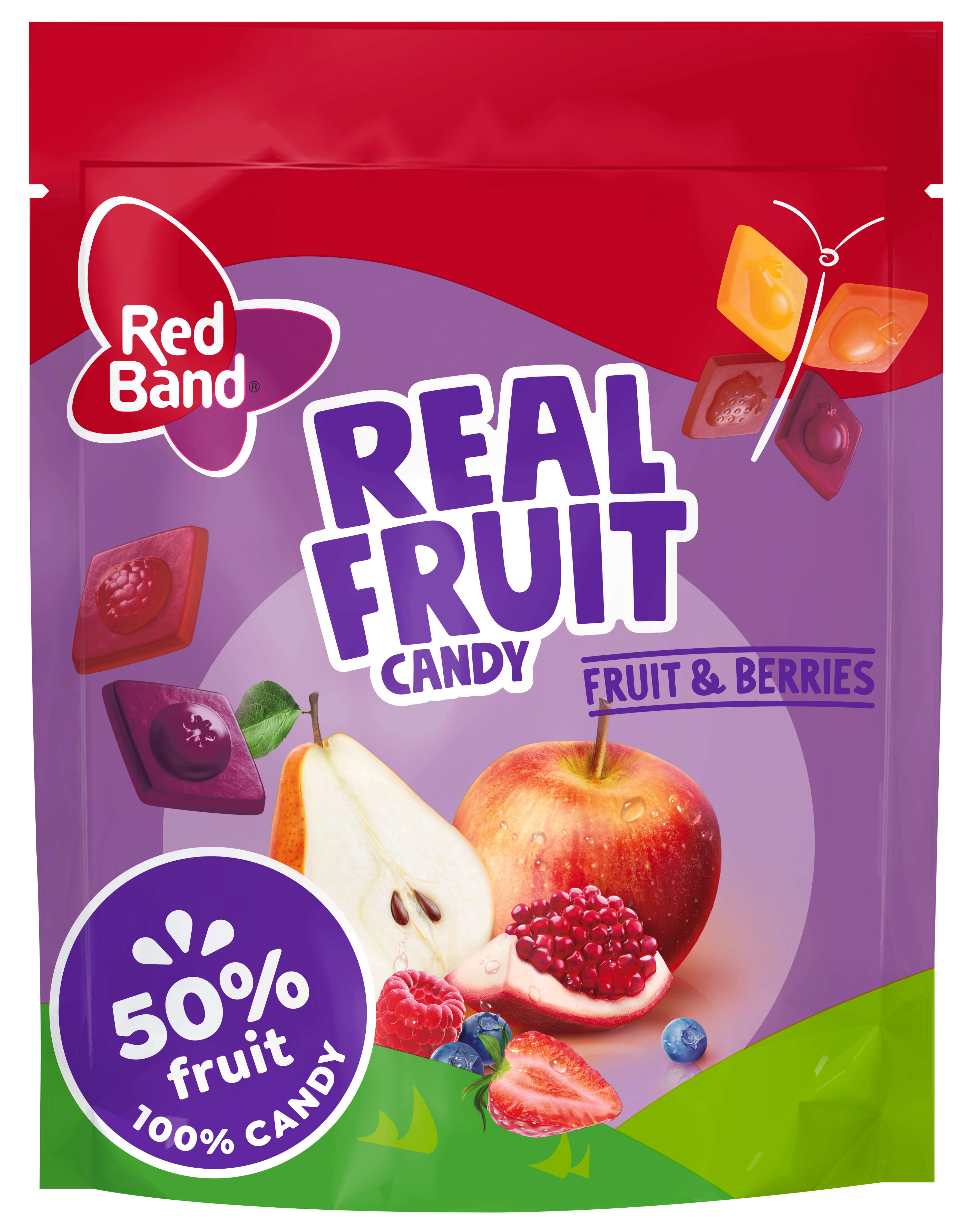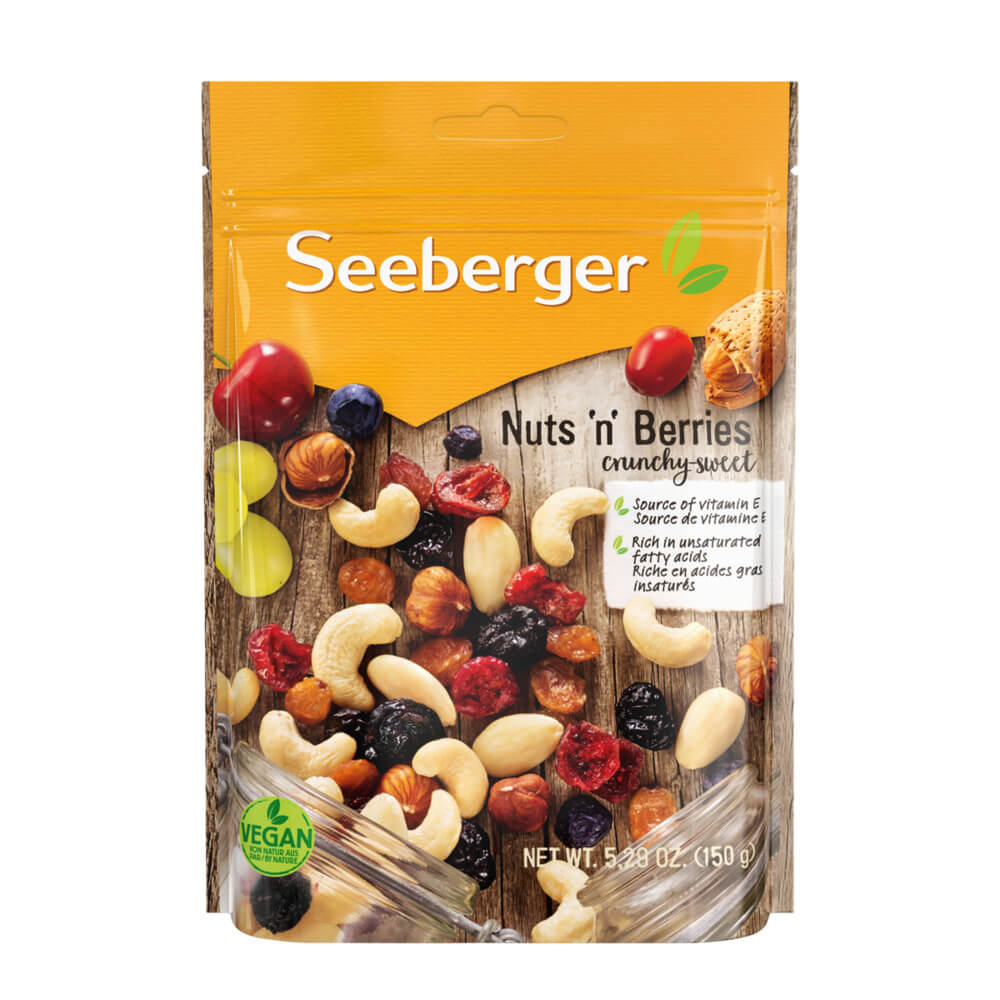Catering to the consumer: alternative snacking and sustainable solutions

Ritter Sport Assorted Vegan Bars 100 grams; the range is available in five flavors
With evolving dietary restrictions and preferences among traveling consumers impacting the market on a greater scale, confectionery and food brands have had to monitor developments closely in order to respond proactively. Beyond travelers seeking to remain health-conscious in-transit and expecting alternative ingredients on the shop floor, those in the category are having to cater to a steadily growing list of diets.
From nutritional snacking to the world of indulgence; plus, current pressures on food systems, this article will look at different corners of the category. We’ll hear from representatives of the following segments: sugar confectionery, nuts and dried fruits and chocolate, who work to help satisfy the traveler’s sweet tooth and love of all things savory.

Red Band Real Fruit Candy is available in two flavor mixes: Fruit & Berries and Fruit & Citrus
Clean eating and sustainable solutions
Across the board, confectionery and food players are conducting regular market research and examining consumer preferences based on key performance indicators to stay at the forefront of evolving dietary trends. At the top of the list, consumers are voicing the need for more raw materials with their health in mind and continuing the push toward sustainable solutions. The health of people and the planet has become a shared priority.
According to Jana Stroop, Global Travel Retail Manager at Cloetta Global Travel Retail (GTR), the company is working toward targets in order to make the move to healthier alternatives for life’s sweetest moments. Over the last year, Cloetta GTR has introduced more vegan options, which now represent 23% of its candy portfolio; 90% of this portfolio consists of non-artificial colors and flavors. “We want to accelerate these developments over the coming years and increase our plant-based confectionery portfolio to 100% by 2025 vs. 2019. Our strategy is to provide more options to our classic brands so that consumers can make a health-conscious choice if they want to,” says Stroop.
Cloetta GTR’s Red Band Real Fruit exemplifies this strategy; as it sees basket spend decreasing and self-consumption on the rise, Stroop says this candy’s 200-gram standing pouches are well positioned to adhere to changing consumer demands, specifically those of the new generation of travelers. The concept of 50% real fruit is unique to the sugar confectionery segment and Cloetta GTR is the first company to make this claim on pack. Red Band Real Fruit is quickly picking up traction worldwide, especially since the product is vegan.
“Cloetta’s discovery platforms and innovation teams work to find ways to provide options that meet these changing tastes while still staying true to our product offering. Innovating for the future is a key success factor in order for Cloetta to stay in tune with consumers’ changing demands,” she adds.

Seeberger Nuts ‘n’ Berries 150 grams; the brand will launch its first travel edition mid-2024
Better-for-you products
On the same note, Seeberger understands the diverse dietary needs of customers, offering vegan-friendly, gluten-free and sugar-free options without compromising on taste. The family-owned company says its range of natural snacks based on nuts and dried fruits are better-for- you products of the highest quality that are innovative and indulgent. This year, the company wants to focus on communicating to consumers how it conducts business and sharing insights, as well as its plans for the future. An addition to its CVS-focused assortment, Seeberger will launch its first travel edition mid-2024.
“Seeberger has experienced positive outcomes from the increased consumer focus on ingredient listings. By providing transparent and clean ingredient information, as well as information about our sustainability work on our products across the supply chain, we have built trust with consumers who are more attentive to what goes into their snacks. This practice resonates well with traveling consumers, contributing to our brand's success in the global market,” explains the brand.

Ritter Sport Choco Cubes Colourful Mix Pouch 397 grams; the 50-piece assortment is available in five flavors
Here to stay
The release of Ritter Sport’s new vegan range at the start of 2023 cemented its response to changing consumer behavior and the increase in “flexitarians” (a person who has a primarily vegetarian diet, but occasionally eats meat or fish). This range also looks to please those who simply want to try something new. Jan Pasold, Managing Director Global Travel Retail at Ritter Sport, says as the company’s main focus last year, promotional activities to support the release took place worldwide. “The response among the trade has been positive. There currently aren’t a lot of vegan products in the travel retail market in confectionery and retailers have a need to provide such an offer. We can’t compare to the regular TREX article in our portfolio in terms of sales, but the range is here to stay. Our highest sales are in Europe among vegan travelers and younger generations,” he shares.
Next wave of innovation
As shoppers seek healthier snacking options, there is opportunity for growth within the savory segment, which is said to be undervalued across the channel. New ways of thinking can also be implemented as more global consumers are making an effort to track their food intake, physical activity and overall lifestyle. Trends in global consumerism can reflect trends in travel retail. “We believe that consumers should be able to choose how they indulge, hence why in each of our products we try to offer a clean recipe, which is reflected on pack as well, meaning traveling consumers can make the same quick and informed decisions as they might do in their home market,” says Stroop. When asked how the category will meet the next wave of innovation in personalization, Seeberger comments it is likely that such tracking will involve advancements in technology, data analytics and artificial intelligence.
Back on the shop floor, the pressures on food systems in connection to dietary preferences and restrictions – and beyond – are visible. As shared by Pasold, the increased price of raw materials continues to heavily impact the cost of manufacturing and the final price point. “In the last two years, we have not increased the [product] price on the same level as the increase in our costs. Hence, we absorb a part of it and give RSP recommendations to the trade that we believe are fair to the trade and the consumer. Every stakeholder in the business has to give something, especially if we want to offer the traveler price points that are acceptable,” he says.









